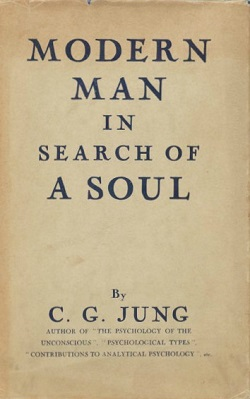When I was writing the RQ cults book, I kept going back to Jung. Here’s a nice little quote from “Modern Man in search of a soul” that is worth pondering:
“Every good quality has its bad side, and nothing that is good can come into the world without directly producing a corresponding evil. This is a painful fact.”
You see this in the core myths of pretty much ever major god. Yelm, Orlanth, and the Red Goddess all brought good into the world, but also produced a corresponding evil. We can add many more to that list if we care to.
And every good quality has its bad side. Again we see this in the myths of the gods, and each must deal with it. How they deal with it differs from cult to cult:
- Yelm. Is killed because of the order he provided to the world, dies and becomes King of the Dead. Gains understanding of Life and Death and is asked by his killers to return to the upper world.
- Orlanth. His deeds free the cosmos, but something is lost in the process. Goes on quest to restore what was lost, and in the end makes amends for his deeds.
- Red Goddess. Accepts the evil that must accompany her actions and rides that evil out of hell.
I think most Gloranthans – at least those in Central Genertela – are better at acknowledging this framework than we are. One can be devoted to Orlanth but also know that the destruction that accompanies a storm is a corresponding bad thing. Or one can be devoted to the Red Goddess and know that Crimson Bat is an evil thing.

![]()
![]()
Now you say “the evil that accompanied Orlanth was more than just something was lost:. But that loss, caused by and synonymous with Death, was a terrible thing. It was the Gods War, and eventually it destroyed the world. But until the Compromise, none could understand it and none could get past it.
Since all the myths acknowledge that every good quality has its bad side, the issue becomes at what point does that bad overwhelm the good? Where are the lines drawn? And it is never easy or clear where they should be drawn.
We get lots of cautionary tales – the failure of the Celestial Court (always worth revisiting that story), the Broken Council, Arkat, the God Learners, the EWF, the Carmanian Empire, and more. But what lessons to draw from those tales, that’s much harder.
Almost every cult draws the line at “associating oneself with Chaos”. That’s a hard line for the Lightbringers, Earth deities, Yelmalio, Kyger Litor and the rest. But for Yelm it is more nuanced or at least less clear – is Chaos any worse than cosmic rebellion?
And for the Red Goddess, that’s not a line at all.
It is not just about mirror image arguments – most Gloranthans can recognise that the good produced the evil. Yelm brought cosmic order, but beyond the edge of the light there is always shadow. The shadows gathered and they appointed a leader, Orlanth, who used Death against Yelm. The bright light was extinguished, and Yelm was sent to the Underworld.
